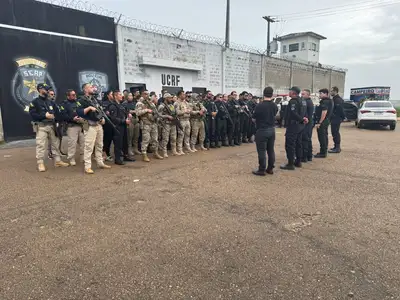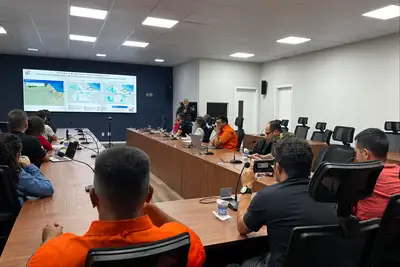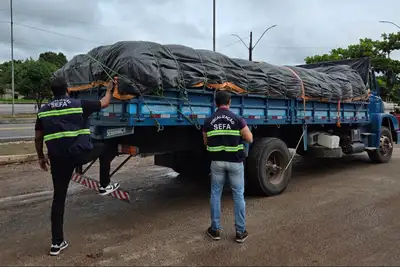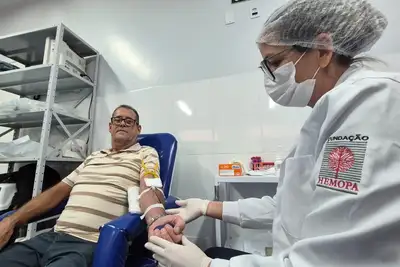Military Police of Pará holds inaugural class of the River Policing Course
The training aims to qualify military personnel for operations in riverine areas, focusing on public safety, citizenship, and combating environmental crimes.
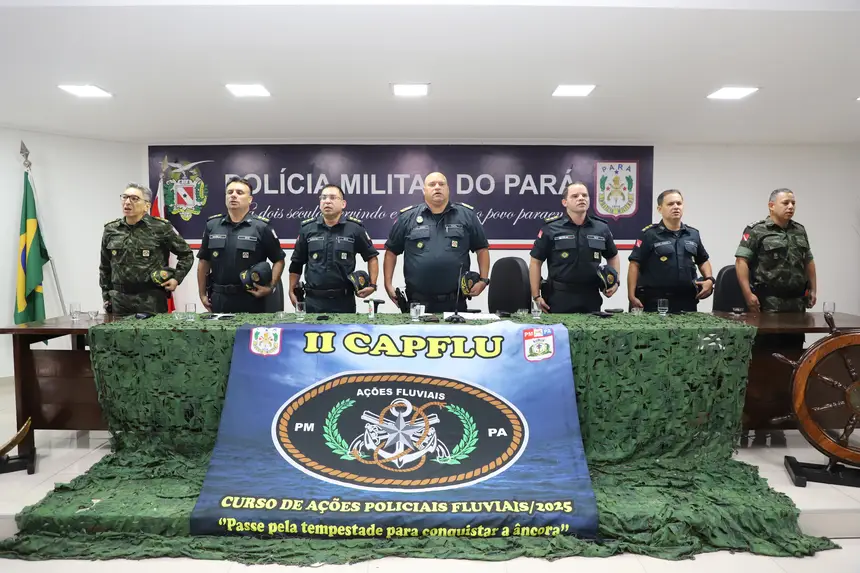
The Military Police of Pará (PMPA) began, this Thursday (24), the inaugural class of the River Policing Course, promoted by the Special Missions Command (CME). The training, aimed at military personnel working in riverine regions, seeks to qualify professionals for the performance of operational activities in hard-to-reach areas, focusing on integrated action and service to the population living along the banks of the state's rivers.
During the opening of the course, the commander of the Military Police, Colonel Dilson Júnior, congratulated the participants and reinforced the importance of training for strengthening public safety in the riverine regions of Pará. "I wish everyone success. We know that this course period is a challenging time. But you will be able, over the next 40 days, to return to your units with more preparation and greater knowledge. May we make this course the largest in our century-old corporation," emphasized the commander.
Among the students, there is an expectation of learning and improvement. Corporal Pablo Patrick, who has been in the corporation for 12 years and has been working in a river unit for two years, spoke about the opportunity to participate in the training. "The expectation is the best possible, to acquire more knowledge in the area. I have been working in the riverine unit for two years and hope to be able to help the riverine population more with this knowledge. They need this policing a lot. I want to learn a lot from the instructors, absorb as much knowledge as possible, and improve our service," said the Corporal.
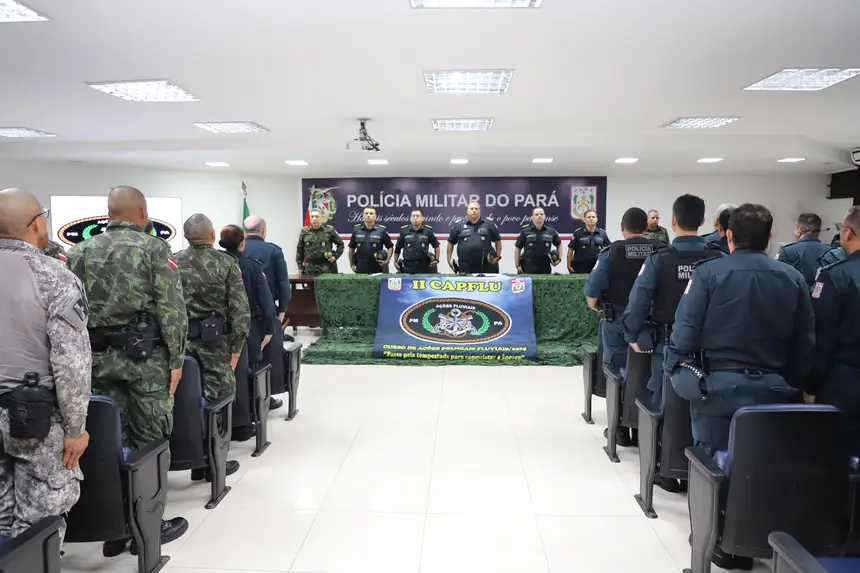
The River Policing Course will have a workload of 350 hours with an average duration of 35 days. Among the themes are: Culture and Legal Knowledge, Conflict Management and Critical Events, Professional Valuation and Worker Health, Functions, Techniques, and Procedures in Public Safety.
The course seeks to prepare students mainly for onboard operations, following the corporation's Standard Operating Procedures. Among the training focuses are the development of tactical skills, standardization of actions, combating environmental crimes, and safe action in response to social demands. The training also aims to strengthen citizenship and social defense through a qualified police presence in the regions served.






